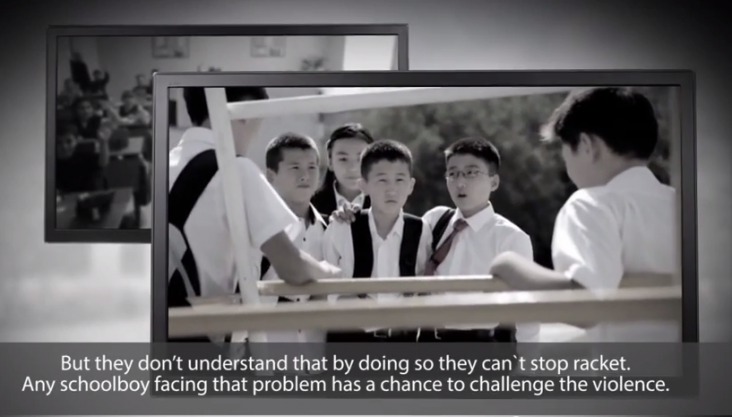
July 2014—On the night of Sept. 11, 2012, a group of 11th grade students from Tashiyev School in the Kyrgyz Republic’s Jalal Abad oblast killed a 10th grade student. This tragedy stemmed from a practice called dedovshchina, or school racketeering, which has become all too common in the country.
In most racketeering cases, upper-class youth extract financial bribes from younger students, offering “protection” in return. In 2010, older students intimidated, harassed and beat an 11-year-old boy continuously for three months, threatening to kill him and his mother.
In December 2012, four final-year students received jail sentences for beating a 16-year-old schoolmate after he refused to give up bribe money. The boy later died from injuries sustained during the assault.
Curtailing Kyrgyzstan’s school racketeering culture is not a simple task—myriad forces work against progress. Some insist that the education system reflects problems within Kyrgyz society at large, including ethnic conflicts, civil unrest and powerful organized crime syndicates. Others suggest that juvenile crime prevention officers—those charged with reining in school racketeering practices—lack the necessary resources to make any significant, long-term impact. And victims rarely, if ever, report the violence they suffer for fear of being judged by peers and incurring even worse harassment.
“School racketeering exists and it’s a fact we can’t deny, but the biggest problem is that children being violated don’t inform the police or military,” said Djakyp Azizov, head of management of public safety in the Ministry of Interior Affairs. “Most of the time, they keep the problem to themselves, because at school they will be shamed if they complain. It’s usually only after the tragedy has happened that we find out.”
A USAID-funded program, Conflict Mitigation through Targeted Analysis and Community Action in the Kyrgyz Republic (COMTACA), is helping schools to address the problem. The year-two program, which began in 2012, is implemented by the Agency for Technical Cooperation and Development (ACTED).
COMTACA builds on existing partnerships and institutions to support conflict analysis by mobilizing community leaders and organizations, civil society, youth, and religious leaders into Early Warning Networks. These networks work with other civil society groups and receive training to collect information on conflict-related issues, use early warning systems and media, resolve disputes, and apply mobile technologies to these activities.
COMTACA engaged directly with students from Tashiyev School and facilitated meetings at 54 other schools across Bazarkorgon district throughout 2013. At Tashiyev, ACTED held a round table attended by over 50 students from grades nine to 11, as well as 14 local officials, including representatives from the Jalal Abad Oblast Advisory Committee, religious leaders, police, and the Early Warning Networks.
The key problem—the lack of communication between students—was addressed, and those involved in school racketeering engaged in positive dialogue with their fellow students, reaching an agreement to adopt a zero tolerance policy towards this harmful practice in the future. The police department and school administration also agreed to work together, promoting activities to increase interaction and understanding among students, thus preventing the risk of future conflict.
To raise awareness of the need to tackle this problem on a wider scale, in 2013, COMTACA produced “Mousetrap,” a documentary in Kyrgyz, with Russian and Uzbek subtitles, dealing with the issue of youth racketeering. COMTACA screened the documentary in 22 schools in the south of the country and Bishkek, and provided the Ministry of Education with 1,500 copies. The documentary was so well received by the ministry that it is now officially recommended viewing for all school children in the Kyrgyz Republic and has already been screened to 70,000 students in Bishkek.
ACTED also partnered with the Youth of Osh, a local youth NGO in Osh oblast, to run a series of trainings and mock mediations on the topic of school racketeering throughout 2012 and 2013. More than 200 students from 11 schools in Osh and Jalal Abad benefited from these USAID-supported sessions, equipping themselves to deal with racketeering in their daily lives.
Thanks to the COMTACA intervention, students at Tashiyev School, and schools all over Kyrgyzstan, now have an improved awareness of the dangers of dedovshchina and mechanisms they can use to prevent this racketeering. This knowledge is already enabling students to enjoy their education in an environment that is safer, and to maintain peace in the community.







Comment
Make a general inquiry or suggest an improvement.